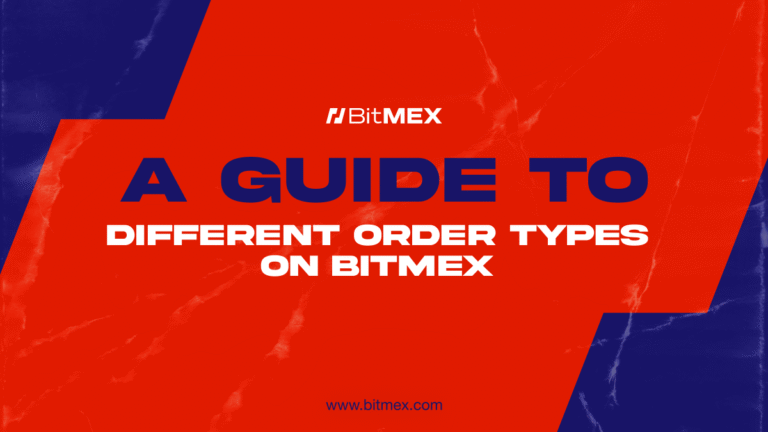[adrotate group="2"]
You might be asking yourself, ‘what will happen to my Bitcoin when I pass away or can no longer manage it?’
The simple answer? Nothing.
Traditional financial institutions, like banks, have established methods for transferring inherited assets after someone’s death.
Traditional finance simplifies the process of accessing the accounts of the deceased and transferring assets to the Estate. Additionally, there are state-sponsored programs for unclaimed or abandoned funds, providing a safety net in case any complications arise.

Bitcoin does not have such mechanisms in place.
There’s no support line, help desk, or off-switch for wallet recovery instructions to ensure your cryptocurrency is passed to your heirs.
The Bitcoin Blockchain Network does not recognize your passing.
Unlike humans, Bitcoin does not perish.
Planning for Digital Asset Inheritance
This article does not constitute legal advice but aims to assist in preparing for discussions with a qualified professional who is licensed to practice in your area.
Upon your death, the court appoints an executor to oversee your Estate, granting them legal authority to manage legacy assets during the approximately 18-month probate process.
The total value of your assets—including bank accounts, real estate, securities, and property (such as Bitcoin)—minus any debts (mortgages, credit, medical bills) is subject to taxation by the IRS.
The IRS categorizes Bitcoin as personal property, similar to real estate or artwork, resulting in a straightforward tax schedule.
Failing to prepare and leaving behind minimal instructions for your heirs is the most minimalist approach to Bitcoin inheritance.
- Probate erodes self-sovereignty.
- Privacy loss due to public court records detailing your assets.
- Taxation undermines the monetary value of your holdings.
Establishing a Revocable Trust for your Bitcoin is gaining traction for estate planning, offering privacy controls and tax advantages compared to dying without a will or transferring assets solely through a Last Will and Testament.
An amendable estate plan with clear instructions for transferring crypto custody to your heirs is intricate, yet more manageable than you might expect.
Feel free to contact us at [email protected] with any inquiries or to schedule a consultation.
How Can My Family Access Bitcoin After My Death?
While the blockchain remains indifferent to whether you hold onto your keys at the time of death, your family certainly cares.

To ensure a smooth inheritance, your Bitcoin estate plan requires attention to detail.
The process of identifying, recovering, securing, and distributing your crypto assets stored in various wallets involves multiple potential failure points, all of which need to be clearly documented.
- Identifying your Bitcoin accounts is the executor’s first task once they receive court approval to manage your estate.
An effective Bitcoin Estate Plan should include a comprehensive list of your online accounts and physical cold storage locations so the Executor knows where to search.
Centralized exchanges such as Coinbase serve as custodians of your Bitcoin and have established procedures for allowing estate executors access to your accounts.
- Accessing hot wallets on your devices or through browser plugins may involve security measures, requiring the executor or authorized person (AP) to securely manage:
- Computer (password)
- Email accounts (username + password)
- Mobile devices (unlock with password/passcode)
- 2-Factor Authentication (2FA) app (password)
- Web/Desktop/Mobile App (username + password)
- 12 or 24-word recovery seeds and seed phrases
- Cold Storage Device PIN code
- Additional cryptographic signatures (e.g., Multi-sig 2 of 3)
- Documentation such as death certificates, court appointment letters, power of attorney, state tax inheritance waiver, affidavits of domicile, trustee certification indicating successor trustees, and letters of authorization (LOA).
Accessing your cold storage self-custody wallet may necessitate a PIN, password, or the 12-24 word recovery seed.
While hiding your cold wallet and recovery seed is crucial for self-custody, you must have a secure method for revealing this sensitive information to your heirs.
Pro Tip: Your 12-24 word recovery seed can restore your wallet(s) on any device, even if the original is lost or damaged. Ensuring safe transfer of the seed is a vital aspect of your succession plan, allowing only authorized individuals access to your Bitcoin.
- After the executor or an AP detailed in your Estate Plan accesses the account(s), the crypto must be secured. Your estate plan should contain explicit instructions for transferring your assets to a new wallet or to a Centralized Exchange (CEX), like Coinbase or Binance, for liquidation.
Example directives for your crypto estate plan:
- Guidelines for securely storing access methods for each account until the crypto is liquidated, including the recovery seed and optional cold wallet passphrase.
- Recommendations for physical and digital security specific to crypto to counteract potential threats that could expose your private keys, such as phishing, social engineering, Bitcoin dusting, and spyware.
- If spyware is a concern, you might instruct the AP to acquire a new device to create a wallet for receiving Bitcoin and signing transactions.
- Detailing the process for creating or confirming transactions across different blockchains, sweeping balances, or verifying receiving addresses. This might be instinctive for you, but consider the technical know-how of your grieving beneficiaries.
- If your heirs lack crypto experience, are you prepared to review essential practices like UTXO consolidation, key & address rotation, or dollar-cost averaging in Bitcoin?
The aim is to safeguard your assets and facilitate their transfer without heightening the risk of loss or imposing unnecessary stress.
Pro Tip: If you do not appoint a trustee experienced in crypto, considering a professional executor for approximately 1-5% of the estate value is an option worth exploring. Investing in your peace of mind by alleviating liability can be beneficial.
Safely Transferring Bitcoin to Your Beneficiaries
Contemplating your death can be disconcerting, which is why 89% of crypto owners worry about their assets upon their demise.

15 Most Common Bitcoin Wallet Recovery Methods:
- Letter of Instruction
- Exchange Account Recovery
- Custodian (Fidelity)
- Safety Deposit Box
- Shamir Secret Sharing (SS)
- Single-Signature
- Single-Signature + Passphrase
- Multi-sig + Passphrase (Non-Custodial)
- Multi-sig (Non-Custodial) 2 of 3+ signatures
- Timelocked Bitcoin Transactions
- Multi-Sig (third-party custodial key)
- Duplicate Hardware Wallet Devices
- Deadman Switch
- Custom Solutions
- Digitally Sending Seed
The Revised Uniform Fiduciary Access to Digital Assets Act (RUFADAA) varies from one state to another, outlining how attorneys, fiduciaries, or executors can access digital assets.
For additional insights, refer to our post that discusses the pros and cons of the 15 methods for transferring Bitcoin after your death.
As the cryptocurrency market evolves, I anticipate the emergence of new solutions like MuSig as superior alternatives to custodial Multi-Sig wallet recovery.
Best Practices for Digital Legacy Planning
- Keep It Simple Stupid (KISS) – If your recovery instructions are overly complicated, you risk losing your Bitcoin. Any instructions with more than basic steps may be considered complex when passed to someone without wallet, transaction, or cold storage experience.
- Education – There is a great deal of information to digest. Family members may struggle to comprehend your directions during a challenging time.
Teach your next of kin how to use a cold wallet and facilitate transfers to an exchange.
Make a list of things to avoid with a recovery seed, such as:
- Don’t take a picture.
- Don’t store files on any computer or internet-connected device.
- Never share your seed over the phone. Trustworthy folks won’t ask for this information.
- Avoid typing or even verbally disclosing your seed phrase.
- Never disclose the amount of Bitcoin you possess.
Pro Tip: Establish a small wallet to practice the entire recovery procedure with a trusted individual. Education and training are critical. At Stratus, we provide services to train and assist heirs in retrieving crypto passed to them in an estate transfer after your demise. We will also help you plan for emergencies or worst-case scenarios, such as simultaneous deaths of you and your heirs.
- Consult a Professional – This article serves educational purposes only; it is not legal, tax, or financial advice.
Numerous qualified advisors can guide you through the basics, but you must ensure they possess the expertise necessary for crypto-related matters.
Be cautious about the advice you follow but patient with those providing it.
- Establish an Estate Plan – As illustrated in this article, the online crypto community emphasizes technical strategies for transferring Bitcoin recovery seeds and account access, yet offers little guidance on incorporating this into an estate plan.
It is essential to implement a legally valid plan for locating your assets and securities, complete with secure instructions.
If you have questions, please reach out to [email protected]
Pro Tip: Setting up a revocable trust for your estate offers considerable advantages over alternatives and adds a layer of privacy and redundancy to your backup recovery plan for both hot and cold wallets.
In Summary:
Regardless of when we started accumulating Bitcoin, we are early adopters, witnessing the asset’s value unfold over time.

We stand strong through market fluctuations with unwavering conviction that Bitcoin adoption will be inevitable. Our proactive approach may yield generational wealth, owning a portion of an asset defined by fixed supply and rising global demand.
Wealth is not merely reflected by the quantity of zeroes or commas in your account balance.
Wealth is about ensuring your grandchildren graduate without student loan burdens.
Wealth signifies preservation, even when you are not around to witness it.
The mental and financial toll of lacking an estate plan to safeguard your legacy is entirely avoidable.
It is tragic when Bitcoin disappears because families are unable to access or locate the digital estate required to distribute their inheritance.
Implementing at least a basic strategy for transferring Bitcoin upon your death should be a priority for anyone who cares about their loved ones.
If all this feels overwhelming, you may want to consider the option of not transferring your Bitcoin after death.

Random individuals on the network will benefit from your donation, reducing the circulating supply.
Indecision leads to losses.
Disclaimer: Stratus does NOT provide investment, legal, or tax advice. All information in this article serves educational purposes and shouldn’t be interpreted as investment, legal, or tax guidance. The opinions expressed are solely those of the author for informational reasons, making neither Stratus nor the author liable for any inaccuracies or omissions. Digital assets, including cryptocurrencies and decentralized finance, carry unique risks for investors. For investment, legal, tax, or other financial advice, consult your advisors.





